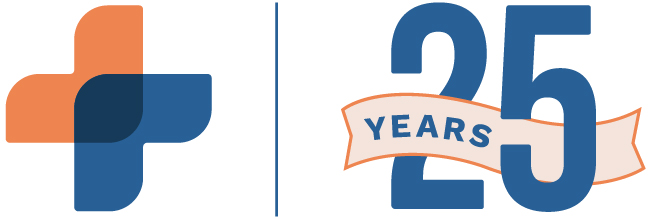21st century medicine is transforming as we know it. This past Tuesday, the Department of Health and Human Services announced that nearly every hospital across the country has adopted the use of certified Electronic Health Records, known as EHR. Since 2008, the percentage of adopted users has increased almost tenfold, now 96% up from 9.4%. EHRs were originally designed to enable medical practitioners to provide the best patient care. RXNT|EHR’s store patient’s records, resulting in medical care that is safer, more efficient, and cost effective.
The benefits of Electronic Health Records are not limited to enhancing patient care. They also have another exciting and powerful use: biomedical research.
In recent decades, there has been a dramatic decrease in the expenses involved with the sequencing of genetic DNA. According to the National Human Genome Research Institute, the cost to sequence a human genome is approximately 10,000 times less expensive than it was in 2006. However, biomedical researchers see an imbalance in the types of data that are available.
While the cost of sequencing DNA has plummeted, the cost of gathering large-scale health data has remained virtually stable.
In order to discover causation between specific genes and medical diseases, a key factor must be established: a patient’s health status. Complex genetic and environmental components are significant when studying the roots of common medical conditions such as heart disease and diabetes. Although there have been stunning advances in the research of genetic material, it is very expensive and difficult to carry out potent, statistically significant studies without individual medical records. Historically, large scale studies have not been feasible with traditional, paper-based medical records for genetic research. Now, extensive, long-term data for millions of people in the United States is just within reach with Electronic Health Records.
Because patient’s medical records serve as a primary source for research, it is important that certain safeguards are set in place. Government law, policies, and regulations surrounding EHR’s are still evolving in order to protect and secure private health information. Medical Professionals believe that collaboration is vital in order to provide the best patient care, so healthcare leaders are looking to make true interoperability a reality. Once there are proper security measures and more interoperability, EHRs may be able to solve the imbalance of data for biomedical researchers.
Currently, there is an unprecedented amount of genetic data, yet a lack of patient history to corroborate this data. With Electronic Health Records, such as RXNT|EHR fully integrated solution, large research projects will have the ability to become more feasible. RXNT|EHR has the functionality and flexibility for physicians to provide the optimal patient care by customizing and streamlining their workflow. If you are interested in learning more about the benefits of RXNT|EHR for your medical practice, contact us at 800-943-7968 option 3 or email us at [email protected].





